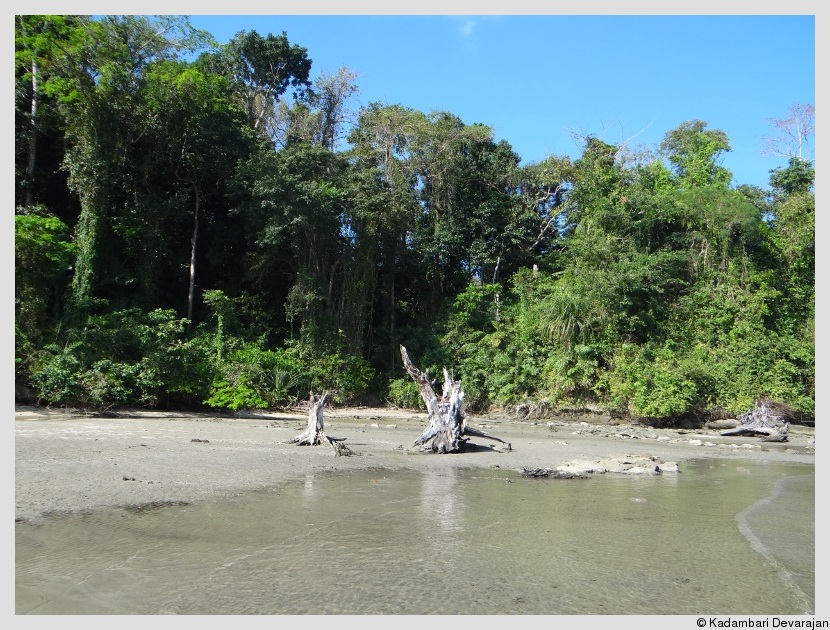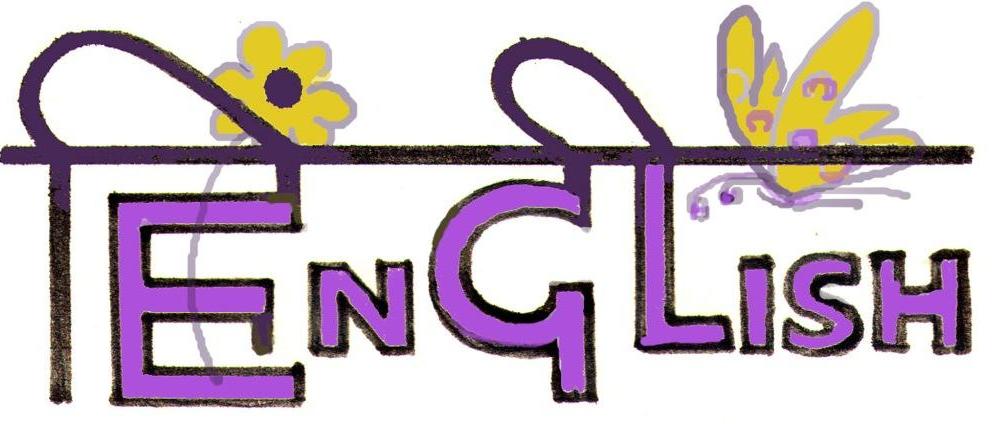There is certain serendipity in writing an editorial on an education themed issue of Fundamatics on the eve of the 70th anniversary of India’s Independence. All the issues that we sought to escape from with the founding of the Indian state in 1947 are, bafflingly enough, still in place. The nationalities problem, as represented most starkly in Kashmir and Manipur; the native Hindu vs.the alien Muslim problem in other parts; the uncertain fate of our underclasses; all of it persists. So one is forced to ask, how fragile – if not failed a state are we?
4Q2015
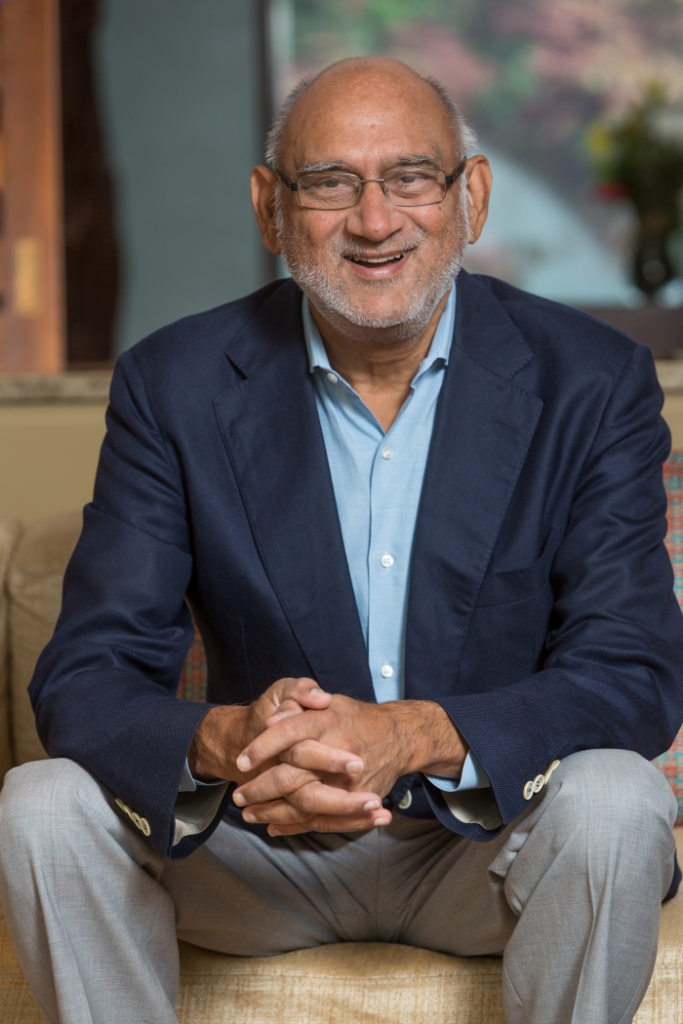 Discussion on the issue of education in India typically gets partitioned into either the issue of primary education or higher education, and most of the attempts at out-of-the-box thinking on education seem overly focused on the ‘box’ itself. In other words, the problem of delivery. How do we deliver high quality education to the millions of young Indians in a timely and meaningful fashion? Without discounting the enormity of the delivery issue, in this article we approach the education issue from a different angle by focusing what is within the box – in other words the content of Indian education. Parag Saxena, Founding General Partner and CEO of New Silk Route Partners who also co-founded Vedanta Capital LLC, in 2006. Parag has been a member of the Foreign Direct Investment task force for the Prime Minister of India and during his last sojourn to India, the Fundamatics team discovered that Parag holds the issue of Indian education very close to his heart. Bumblebee got him to share his thoughts on what he feels is the need of the hour for Indian education and the content required to make Indian education and the institutions that deliver it more relevant. ~
Discussion on the issue of education in India typically gets partitioned into either the issue of primary education or higher education, and most of the attempts at out-of-the-box thinking on education seem overly focused on the ‘box’ itself. In other words, the problem of delivery. How do we deliver high quality education to the millions of young Indians in a timely and meaningful fashion? Without discounting the enormity of the delivery issue, in this article we approach the education issue from a different angle by focusing what is within the box – in other words the content of Indian education. Parag Saxena, Founding General Partner and CEO of New Silk Route Partners who also co-founded Vedanta Capital LLC, in 2006. Parag has been a member of the Foreign Direct Investment task force for the Prime Minister of India and during his last sojourn to India, the Fundamatics team discovered that Parag holds the issue of Indian education very close to his heart. Bumblebee got him to share his thoughts on what he feels is the need of the hour for Indian education and the content required to make Indian education and the institutions that deliver it more relevant. ~
What will the raising of fees in public institutions cost us?
Dear XXXX,
As it is, ‘good’ education in India is reserved for rich parent’s kids – kindergarten upward. It is a policy to make sure that the relatively stupid offspring of better off parents corner the better paying jobs in the country.
International experience suggests that the lower middle class and poor sections of society do not like to take loans or even avail of merit scholarships.
As the hapless Victoria driver from Manto’s short story discovered on the day after, 15 August 1947 did not change anything for him. It would not have changed anything for many of us either, but for education. Education has been the single most powerful and the most reliable engine of social and economic mobility that has transformed the lives of millions of our country’s men and women since Independence. Access to good and affordable education ensures that natural talent, no matter from which strata of our society, can aspire to achieve its potential and contribute to the nation.
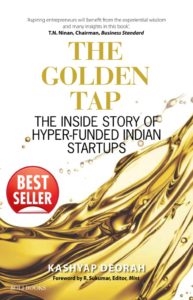
[The following piece The Internet Changes Everything has been extracted from Part 1: The Internet Wave (1994–2002) of the book ©’The Golden Tap: The Inside Story of Hyper Funded Indian Startups’ by Kashyap Deorah. The book was first published by The Lotus Collection, an imprint of Roli Books Pvt.Ltd , India, in 2015. It is available for purchase on Amazon.in as a Hardcover and Kindle edition.]
The Internet is the first thing that humanity has built that humanity doesn’t understand, the largest experiment in anarchy that we have ever had.’
~ Eric Schmidt
“Island biogeography, I’m happy to report, is full of cheap thrills. Many of the world’s gaudiest life forms, both plant and animal, occur on islands. There are giants, dwarfs, crossover artists, nonconformists of every sort. These improbable creatures inhabit the outlands, the detached and remote zones of landscape and imaginability, in fact, they give vivid biological definition to the very word ‘outlandish.’” – David Quammen, The Song of the Dodo
First, let me put this column is perspective. In the December issue of Fundamatics, I wrote a column entitled, “The Golden Rule, Balgram, Michelangelo, IIT, and IIM,” which basically made the case (I should never say such a thing to my fellow IITians – what I mean is that I attempted to make the case) that government bureaucrats are best advised not to be making decisions in the running of colleges or universities– particularly the IITs and IIMs. I quote below some excerpts from that article, though I encourage you to read it yourself.
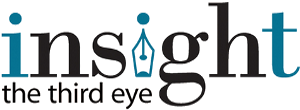 PANELISTS: ANEES VP, ANURAG CHAFALE, APRAJIT LOHAN, CHANDNI RAJENDRAN, GARRY FERRAO, HIMANI MEHTA, MIHIR BHOSALE, SUMIT SHEKHAR
PANELISTS: ANEES VP, ANURAG CHAFALE, APRAJIT LOHAN, CHANDNI RAJENDRAN, GARRY FERRAO, HIMANI MEHTA, MIHIR BHOSALE, SUMIT SHEKHAR
As the institute struggles to deal with the growing number of students on one hand, and budget cuts on the other, the struggle is reflected in the infrastructure found herein. To add to that, Mumbai’s weather is moderately hot and highly humid, and poses a significant challenge in structural integrity. Many structures in the institute, like hostels, VMCC, Workshop Bays, and Infinity Corridor face various problems, especially in the monsoon. It is essential that IIT-B’s image as the premier institute of our country with the best of infrastructure be maintained and all steps be taken by the authorities for this. We aim at exploring the causes and effects of these issues and institute policies formulated thence.
Six world leaders hold an emergency summit at the Austrian Ski town to tackle an imminent economic meltdown.
Six world leaders hold an emergency summit at the Austrian ski town, Kitzbuhel, to discuss how the ISIS crisis, oil, commodities and China’s slowdown could drown the world in 2016 unless they jointly did something. They ended up merely sharing some data to justify what each one was up to. The Indian PM Modi, on his way back gets his advisor to explain to journalists on board his aircraft, what all that data that he got at the summit, really means for the world and to India in particular. 2016 will be a tough and volatile year, in which oil prices will drop further. At some point however, oil price will creep up. Some parts of the world would be worse off than last year, especially OPEC, Russia, etc. Disturbances would affect Latin America. The ME could be a tinderbox that could send oil prices up again. China will be in transition, not likely to lose its global market share but some domestic market ‘explosions’ will keep China in the news and the global stock markets on tenterhooks. This will affect India’s bourses as well despite the Indian economy pulling upwards because FDI starts finally kicking in, inflation remains under control and fortunately, decent monsoons and low oil prices help Modi to keep the GDP a little above the 2015 rate despite fall in exports. Who will the winners and losers be? Will speculators exploit the vulnerability of the situation to trigger a crisis? Read on for more.
I am Bankim Biswas and what I write is a lot of bunkum and wishwash.
Once upon a time, there was a language named English language. It was an intellectual property of, and therefore under the ownership of the British Empire. The fact that the intellectual property and ownership words did not belong to the English language and were later day embellishments, inserted by takeover tycoons is another matter and the subject matter of this article, more on that later down the page. If you’re on the same page, that is.


